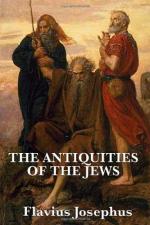|
This section contains 2,049 words (approx. 7 pages at 300 words per page) |

|
The beginning of the twenty-first century was witness to an emergent transformation of the history of philosophy. While still the subject of intense debate within philosophy, the dominance of the image of the history of philosophy as a succession of "master thinkers" whose texts provide the historical background to contemporary philosophical debates has begun to wane. As philosophers come to embrace the historiography of philosophy and accept that attention to the past is not a simple process of reading past masters, methodological issues have become central to the history of philosophy and questions are being raised concerning the canonization of both theorists and texts, the conceptual role of history in philosophy, the accessibility of the past, and the role of interpretation.
Feminist history of philosophy has played a significant role in this transformation. From its outset, feminist historians...
|
This section contains 2,049 words (approx. 7 pages at 300 words per page) |

|


